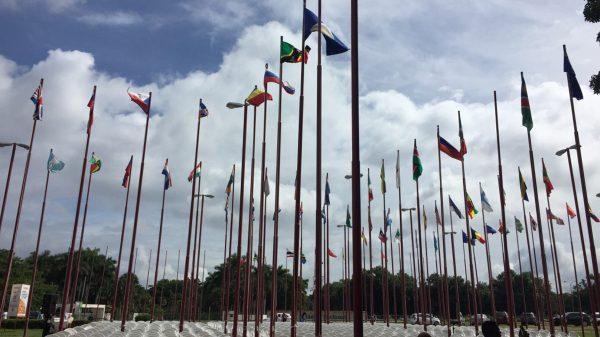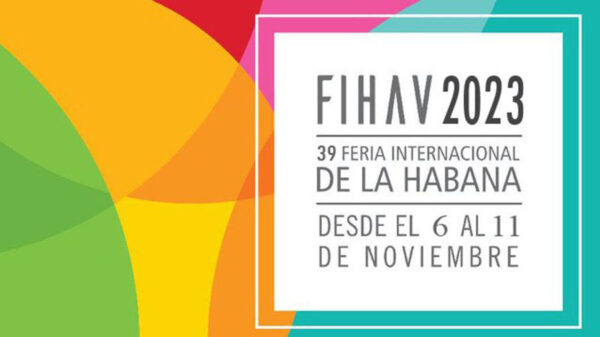Rodrigo Malmierca Diaz is Cuba’s Minister of Foreign Investment and Trade. The Minister is currently Joint Chairman of the Cuba Initiative Trade and Investment Forum which took place last week in Havana.
In this interview, Minister Malmierca offers some insights into the shared priorities of the Cuba – United Kingdom relationship, Cuba’s new One Stop Shops for foreign investment, and the challenges of a dual currency economy. We also found it of prime concern for our readers to ask the Minister how Cuba intends to protect its foreign investors in terms of the recent enactment of the U.S. Helms Burton Title III regulations.
Prior to this interview, we asked a few preliminary questions to Minister Malmierca to serve as an introduction. We wanted to know where Cuba and the U.K.’s shared investments stand today.
Cuba Business Report: Can the Minister please provide the numbers of British Foreign direct investment (FDI) into Cuba for 2018 and where British FDI is situated today, year-to-date?
Minister Rodrigo Malmierca Diaz:
Cuba has six British companies’ investments. Four of them are joint ventures linked to the tourism sector, including hotels and real estate developments.
Another important British investment is developed by a joint venture in the energy sector called Biopower S.A. It is a project to build a new 60 MW bioelectric plant, which is expected to be completed in 2019.
The other project in the energy sector is a totally foreign owned enterprise to install a new 50 MWp solar park in the Special Development Zone of Mariel. The place where it is being built was visited by His Royal Highness the Prince of Wales in March 2019.
Cuba Business Report: Also, could the Ministry provide the combined exports and imports numbers – Cuba-UK: 2018 and, if any are known, for 2019 year-to-date?
Minister Malmierca:
At the end of 2018 the United Kingdom occupied the 33rd place in the commercial exchange of Cuba with the World and the 14th position within Europe. Within the European Union it is ranked on the 11th place.
In 2018, the commercial exchange of goods registered an approximate value of 51 million pesos, which represented a decrease in the order of 33 % with respect to the same period of the previous year. This was motivated by a 26% decrease in the volume imported. Among the main products exported are tobacco, rum, immunizing agents; while medicines and turbines are the main imports.
There is a lot of potential to increase the commercial exchange in both directions.
Interview:
Cuba Business Report: What are the priority sectors Cuba is most eager to present to potential British investors at the Cuba Trade and Investment Mission?
Minister Rodrigo Malmierca Diaz:
The activities we have identified as prioritized for foreign capital correspond to the strategic sectors defined in the National Development Program until 2030 and include, among others, tourism, the biotechnological and pharmaceutical industries, food production, construction and the energy sector, with emphasis on increasing the use of renewable sources of energy.
In my opinion the priority sectors that could be of interest to UK investors are agriculture and food industries, construction, light industry, mining, tourism and the biotechnology.
The Cuban business community is open to receiving business proposals and assessing their suitability. We have a portfolio of opportunities with more than 525 projects identified to develop with foreign capital in more than 16 sectors of our economy.
We recommend the UK business community review the portfolio for the sake of facilitating the exchanges with the Cuban companies.
Cuba Business Report: I understand there is a delay of bureaucracy and negotiations that still faces potential investors. There is a “One Stop Shop” – Single Window for Foreign Trade (VUCE) in place at the Special Development Zone of Mariel (ZEDM) and there are plans to initiate this process throughout Cuba. How advanced is Cuba’s progress on hastening the investment process for foreign investors (expected completion date)?
Minister Malmierca:
There is a One Stop Shop-Single Window in the Special Development Zone of Mariel (ZEDM). That one is not for foreign trade, but to help the users or concessionaries of the Zone to establish themselves there.
In any case, the Ministry of Foreign Trade and Foreign Investment is developing two new One Stop Shops, one for Foreign Trade and the other for Foreign Investment. We expect that the One Stop Shop for Foreign Investment throughout Cuba will be in place in January 2020. We are confident it will speed up the assessment process of the foreign capital projects as well as facilitate getting all the permits and licenses the investors are required from different Cuban authorities to materialize their investments in my country.
Cuba Business Report: A dual currency economy poses challenges for both Cuba and foreign investors. Will the currency situation be resolved in the near future or is it to remain as it is? How far off is the situation to being resolved?
Minister Malmierca:
Certainly, the currency and exchange duality causes distortions in the way in which economic facts are measured and in the proper functioning of the national economy.
That is why we are determined to complete this process, and we have been working hard for it. Although we cannot define a specific date, I assure you that our will is to achieve it as soon as possible.
This is an extremely complex process. Fundamentally, because of the determination of the Cuban government to minimize the effects on the population.
Cuba Business Report: How is Cuba going to protect foreign investments in light of the enactment of Helms Burton Title III?
Minister Malmierca:
Cuba has a legal framework focused in protecting foreign investors. In 1996, after the Helms Burton Act was passed in the US Congress, Cuba issued a law stating that the “Helms-Burton” Law is unlawful, unenforceable and without any legal value or effect, so any actions under that US Law is worthless here.
This Cuban law also states that the Cuban government can support foreign investors in different ways, for instance, providing information about the owners of the land or assets nationalized since 1960, helping them to give evidences of the illegitimacy of the claims under the Title III, supporting them in courts of their own countries to get compensations against the prejudices caused by the claims, among others measures.
The new Foreign Investment Law of 2014 included in the Guarantees Chapter, the protection against extraterritorial acts, among others. The new Cuban Constitution of April 2019, recognizes in Article 28 those guarantees incorporated in the Foreign Investment Law. It is a very transparent and secure legal framework on this regard.
Other countries also enacted different regulations to protect the investments of their nationals in Cuba. The European Union has a Blocking Statute in WTO, which protects European investors in Cuba in the case of claims against them, allowing the investors to ask for compensations in case of any prejudice caused by the claims.
Cuba Business Report: In light of the recent visit by Their Royal Highnesses in March, how do you perceive the Cuba-UK investment climate? Would you like to comment on the relations between Cuba and the UK?
Minister Malmierca:
I perceive the Cuba-UK investment climate very open and with important possibilities to strength the bilateral economic relations between both countries.
There are many business opportunities in sectors of mutual synergy to increase projects.
These days the Cuba Initiative is being relaunched, which is a joint mechanism to favor bilateral economic relations. A British delegation headed by the Co-Chair of the Cuba Initiative, Lord David Triesman is in Havana to attend a Business Forum and visit places of interest. We have high hopes in the results of these activities.
Cuba Business Report: Minister Malmierca, I am most honored and grateful that you were able to speak with me and share your thoughts on the potentials of the Cuba-UK trade relationship and current investment issues and priorities for Cuba.

T.K. Hernández is co-founder and editor at Cuba Business Report. Her work has been published in various online news media publications. Hernández has supported fundraising for Cuba’s last two hurricane disaster relief campaigns and is a member of the Canadian Network on Cuba. She is also a member of The Writers Union of Canada, and ACES International Alliance of Editors. Ms. Hernández is the author of three books, most recently, “The Cuba Interviews: Conversations on Foreign Investment and Economic Development,” (Palgrave Macmillan, 2023).













